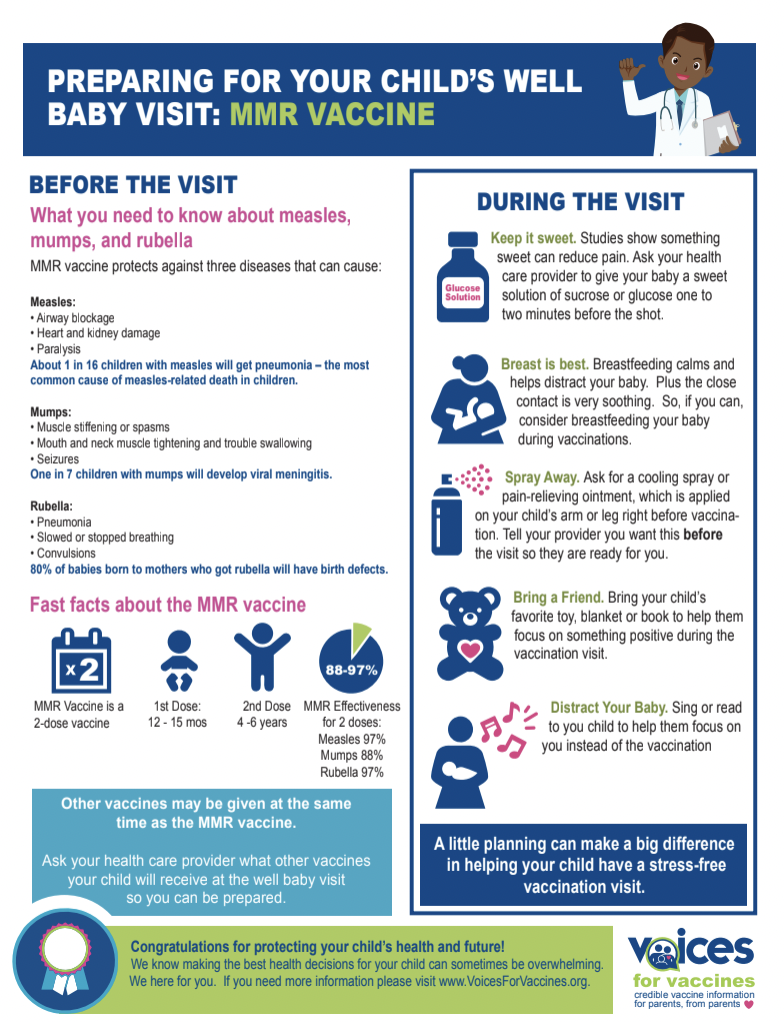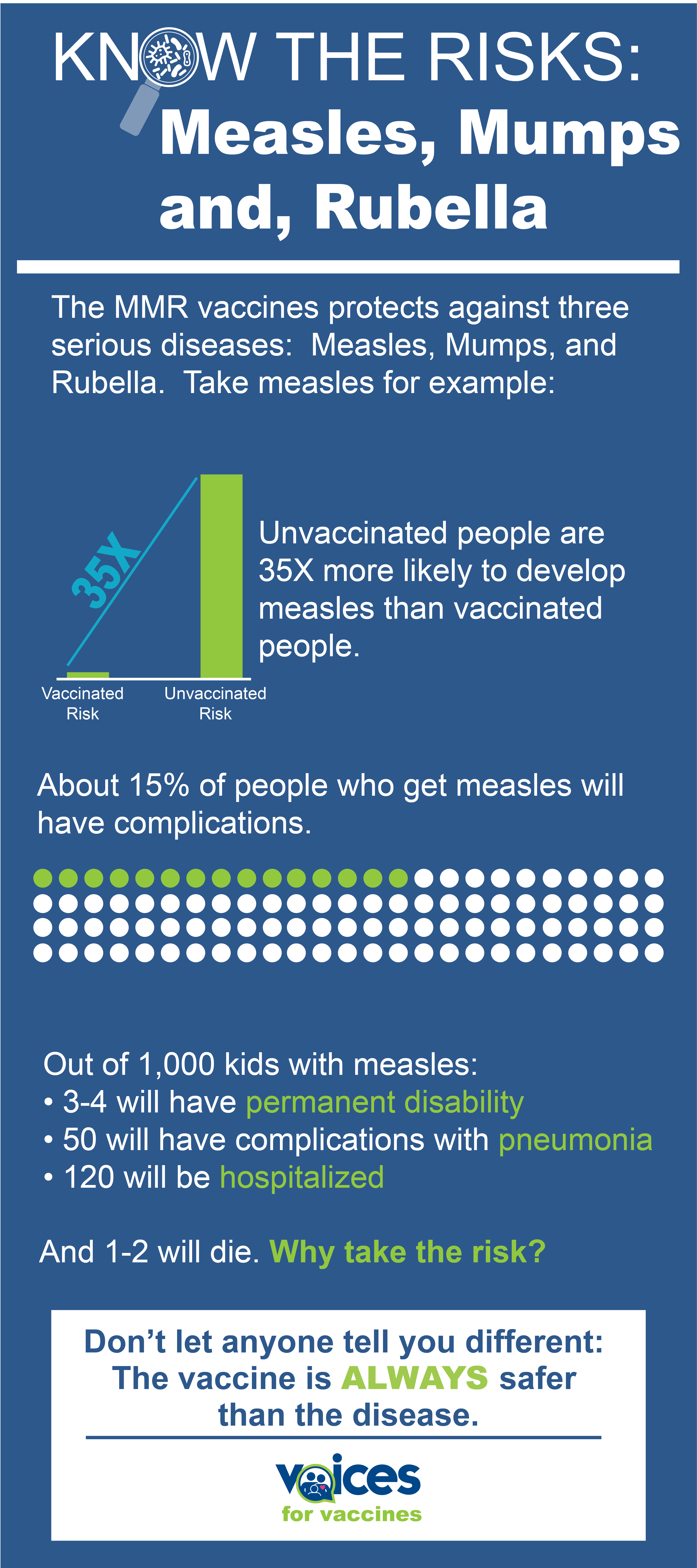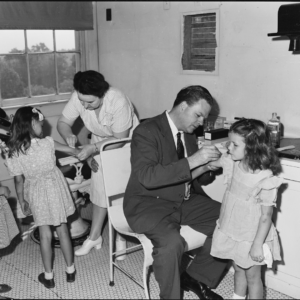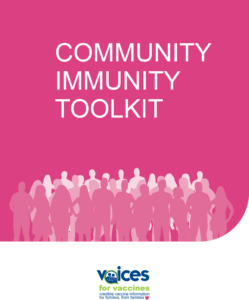Measles, Mumps, and Rubella (MMR) Vaccine
What are measles, mumps, and rubella?
Measles is a highly contagious viral illness that is spread from person to person through coughing or sneezing. Common symptoms include a cough, runny nose, inflamed eyes, sore throat, fever, and a red blotchy skin rash. Due to the successful measles vaccination program, measles virus no longer circulates year round in the United States. However, children can get infected overseas or in their local communities when cases or outbreaks occur. And measles virus could again circulate widely in the US unless we maintain high levels of vaccination, especially in children.
Mumps is another contagious viral illness that affects the glands around the ears, causing puffy cheeks and a swollen, painful jaw. It is spread from person to person with close contact, such as those sharing a home or classroom, practicing sports with others, or sharing cups or water bottles.
Rubella is a contagious viral illness with a red rash, enlarged neck lymph nodes, mild fever, and headache. It is spread person to person through the air by coughing or sneezing. People who get rubella during early pregnancy can have children with very severe birth defects. Like measles, rubella virus no longer circulates year round in the U.S., but parents should continue to vaccinate their children to prevent them from getting rubella in the US or abroad.
What are the risks from measles, mumps, and rubella?
Measles can be very serious. Among people who get measles:
- About 1 in 14 people with measles will get an ear infection (usually in children).
- Severe ear infections can cause permanent hearing loss.
- About 1 in 16 will get pneumonia, which is the most common cause of measles-related death in children.
- About 1 in 1,000 people will develop swelling of the brain (encephalitis). 15% of people who develop encephalitis will die, and 25% will have permanent brain damage.
Before wide-scale vaccination through the Vaccines for Children program (1985 – 1992), about 450 people in the U.S. died every year from measles. Most of these deaths occurred in children. Even with the best care, up to 3 of every 1,000 people with measles will die.
The most common risk for mumps is viral meningitis, which occurs in about 1 in 7 children. Additional complications, which can be particularly serious in adults, include inflammation of testicles, ovaries, pancreas, brain, and spinal cord. These complications may lead to deafness or permanent infertility.
Rubella is a mild disease; however, if you get it during pregnancy, the effects on your unborn child can be devastating. Almost 80% of babies born to women who had rubella in the first trimester develop congenital rubella syndrome. Pregnant women cannot receive this vaccine, so it is important that they receive it before they become pregnant and that everyone around them has also been vaccinated. Congenital rubella syndrome can cause:
- cataracts and blindness
- deafness
- congenital heart defects
- defects in other organs
- intellectual disabilities
How effective is the MMR vaccine?
The CDC recommends two doses of MMR for best protection:
One dose of MMR vaccine is:
- 93% effective against measles
- 78% effective against mumps
- 97% effective against rubella
Two doses of MMR vaccine are:
- 97% effective against measles
- 88% effective against mumps
How safe is the MMR vaccine?
The MMR is a very safe vaccine that protects against serious and sometimes deadly diseases. Like all medicines, there are some risks, but they are very rare. The risks of serious complications from the disease are far greater than the risk of a serious adverse reaction.
Some parents are concerned about MMR based on a fraudulent article published years ago claiming an association with autism. The 1998 study that started this disinformation was investigated and found to be fraudulent (not true). The doctor who led the study misrepresented the data and was found guilty of scientific misconduct. He lost his license to practice medicine, and the journal which originally published the paper retracted it. When a study is retracted, it is no longer part of the scientific record.
Since then, there have been hundreds of studies involving thousands of children in many countries looking at whether vaccines might be connected to autism. None of these studies has found any connection. Two important studies include:
- 1999 Brent Taylor study that compared children with and children without autism. The study found that the percentage of vaccinated children was the same in both groups.
- 1991-1998 Denmark study by Madsen that included 537,303 children for a total of 2,129,864 person-years. The study found the risk of autism was the same in vaccinated and unvaccinated children.
We must make sure the information we are using to make any important decision is credible.
Unfortunately, the 1998 study was not credible but has been very harmful.
When should my child get the MMR vaccine?
Children should receive two doses of MMR. The CDC recommends the first dose between 12-15 months of age, and the second dose between 4-6 years of age.
Talk to your healthcare provider about what other vaccines your family needs.
What can I expect at an MMR vaccine appointment?
A little research before your child’s well baby visit can go a long way to reducing your stress and concerns. Credible information helps ensure healthy choices and builds vaccine confidence.
Measles, mumps, and rubella Fact Sheet
Is your child due for a Measles-Mumps-Rubella (MMR) vaccine? Get our MMR vaccine fact sheet and prepare for your appointment!
Where can I get more information?
These organization are vaccine experts and can provide credible information:
How do I know this information is credible?
We work for parents so we make sure that parent concerns are addressed using facts and science and our content is reviewed by experts who have spent their careers studying vaccines. Learn more about how we ensure we are bringing you the best information to help you make healthy choices for your family.






